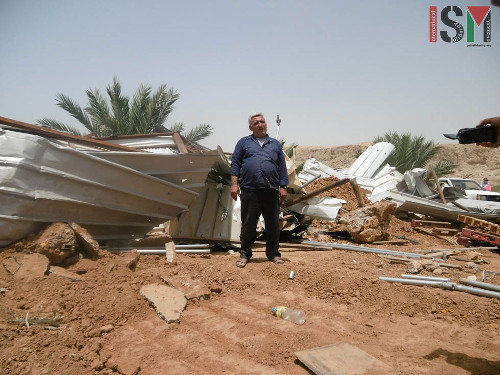Author: ISM Media
-
One person shot at protest against Israel’s cancer-causing chemical plants in Tulkarem
29th April 2015 | International Solidarity Movement, Huwwara Team | Tulkarem, Occupied Palestine Around fifty Palestinians and international activists gathered today in Tulkarem, east of Nablus, to protest the presence of 11 Israeli chemical plants located in the city. The protest took place outside the Gishuri chemical plant on what is locally referred to as the “death…
-
Four families made homeless in a day
28th of April 2015 | International Solidarity Movement & Jordan Valley Solidarity | Fasayil, Jordan Valley, Occupied Palestine Yesterday morning (27th of April 2015) at 5 am in the area of al Makhrouk, al Jiftlik, the Israeli military arrived with bulldozers and demolished four houses belonging to Fathe Abdullah Ahmad, Tareeq, Yakub, Mohammed and Mahmoud…
-
South Hebron Hills – farming under occupation
27th April 2015 | International Solidarity Movement, Team Al Khalil | South Hebron Hills, Occupied Palestine Located in the tip of the West Bank, the South Hebron Hills are dotted with farming and shepherd communities. We are currently in the wheat harvest season and the children are spending their last few weeks at school before…



